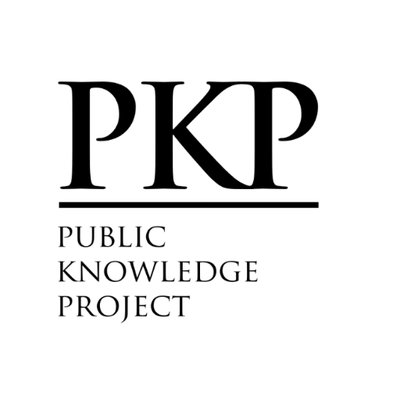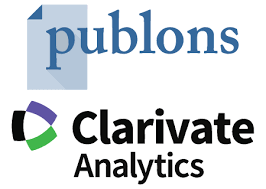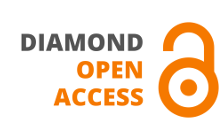Examen de l'apprentissage, de l'intention et des attitudes des étudiants à l'égard de la carrière en comptabilité
DOI :
https://doi.org/10.59051/joaf.v15i2.909Mots-clés :
Mots clés : étudiants, apprentissage, intention, attitudes, carrière en comptabilité, OmanRésumé
Objectif : La décision de poursuivre une profession en comptabilité et ses performances futures dans ce secteur peuvent être considérablement influencées par les objectifs et les attitudes des étudiants. Les étudiants peuvent augmenter leurs chances de réussite en se concentrant sur leur éducation et leur formation lorsqu'ils ont un objectif clair pour leur carrière en comptabilité, comme une profession ou un secteur préféré. Les employeurs peuvent être convaincus par un candidat avec une forte éthique de travail, un sens des responsabilités et une ponctualité. Cela devrait aider les étudiants à améliorer encore davantage leur perception de la profession comptable. Ainsi, le but de cette étude est d'examiner l'apprentissage, les intentions et les attitudes des étudiants à l'égard de la carrière comptable.
Méthode : Cette étude a testé son modèle de recherche en utilisant une enquête en ligne et une méthodologie quantitative. 141 étudiants universitaires d'Oman ont fourni les données de l'échantillon d'enquête. En utilisant le logiciel SEM-PLS (Structural Equation Modeling-Partial Least Squares) version 4.0, une analyse des données et des tests d'hypothèses ont été effectués.
Résultats : Le résultat a montré que l'environnement d'apprentissage a une relation significative avec le choix d'une carrière en comptabilité. L'intention actuelle de recherche de connaissances a également une relation substantielle avec le choix d'une carrière en comptabilité. Cependant, l'attitude des étudiants n'a pas d'influence sur le choix d'une carrière en comptabilité.
Originalité / pertinence : Cette étude enrichit le corpus de recherche en analysant les intentions et les attitudes des étudiants à l'égard d'une carrière en comptabilité. Les enseignants en comptabilité peuvent utiliser ces résultats pour modifier le programme actuel afin de mieux répondre aux perspectives culturellement compatibles des étudiants sur le domaine de la comptabilité.
Téléchargements
Références
Adela, V., Romli, H., & Putri, A. U. (2023). Factors Affecting Interest in Accounting Students As Public Accountants (Empirical Study at Indo Global Mandiri University). International Journal of Marketing & Human Resource Research, 4(1), 1-7. https://doi.org/10.47747/ijmhrr.v4i1.984
Akrout, O., & Damak Ayadi, S. (2022). Intention to leave public authentic profession in Tunisia: a qualitative study. Journal of Accounting in Emerging Economies, 12(1), 1-28. https://doi.org/10.1108/JAEE-08-2019-0160
Aliffia, P., & Ulupui, I. G. K. A. (2023). Problem Solving Application Ability in Accounting Students. International Journal of Multidisciplinary Research and Literature, 2(1), 73-86. https://doi.org/10.53067/ijomral.v2i1.74
Asonitou, S. (2022). Impediments and pressures to incorporate soft skills in Higher Education accounting studies. Accounting Education, 31(3), 243-272. https://doi.org/10.1080/09639284.2021.1960871
Chi, T. K., Yi, T. S., Al Mamun, A., Hayat, N., Salamah, A. A., & Yang, Q. (2022). Predicting the intention to pursue Certified Professional Accountancy qualification among the accounting students. Frontiers in Psychology, 13. https://doi.org/10.3389/fpsyg.2022.860204
Douglas, S., & Gammie, E. (2019). An investigation into the development of non-technical skills by undergraduate accounting programs. Accounting education, 28(3), 304-332. https://doi.org/10.1080/09639284.2019.1605532
Ebaid, I. E. S. (2022). Sustainability and accounting education: Perspectives of undergraduate accounting students in Saudi Arabia. Journal of Applied Research in Higher Education, 14(4), 1371-1393. https://doi.org/10.1108/JARHE-05-2021-0183
Fornell, C., & Larcker, D. F. (1981). Structural equation models with unobservable variables and measurement error: Algebra and statistics. https://doi.org/10.1177/002224378101800313
Hatane, S. E., Emerson, B., Soesanto, O., Gunawan, R. A., & Semuel, H. (2022). Accounting students' perceptions of work–life balance, accounting career image, and intention to pursue accounting careers. Higher Education, Skills and Work-Based Learning, 12(3), 401-418. https://doi.org/10.1108/HESWBL-09-2020-0209
Hatane, S. E., Setiono, F. J., Setiawan, F. F., Semuel, H., & Mangoting, Y. (2021). The learning environment, student's attitude, and intention to enhance current knowledge in the context of choosing an accounting career. Journal of Applied Research in Higher Education, 13(1), 79-97. https://doi.org/10.1108/JARHE-06-2019-0156.
Heang, L. T., Ching, L. C., Mee, L. Y., & Huei, C. T. (2019). University education and employment challenges: An evaluation of fresh accounting graduates in Malaysia. International Journal of Academic Research in Business and Social Sciences, 9(9), 1061-1076. DOI: 10.6007/IJARBSS/v9-i9/6396
Henseler, J., Ringle, C.M. and Sarstedt, M. (2015), "A New Criterion for Assessing Discriminant Validity in Variance-based Structural Equation Modeling", Journal of the Academy of Marketing Science, Vol. 43, pp. 115-135. https://doi.org/10.1007/s11747-014-0403-8
Jasim, Y. A., & Raewf, M. B. (2020). Information technology's impact on the accounting system. Cihan University-Erbil Journal of Humanities and Social Sciences, 4(1), 50-57. https://journals.cihanuniversity.edu.iq/index.php/.
Johnstone, D. (2022). Accounting research and the significance test crisis. Critical Perspectives on Accounting, 89, 102296. https://doi.org/10.1016/j.cpa.2021.102296
Karlsson, P., & Noela, M. (2022). Beliefs influencing students’ career choices in Sweden and reasons for not choosing the accounting profession. Journal of Accounting Education, 58, 100756. https://doi.org/10.1016/j.jaccedu.2021.100756
Luqman, S., Lasniroha, T., Fadjar, A., Rusmawan, R. W., Veronica, V., Gedizza, G., & Zakiah, Z. (2022) The Effect of Capital Market Career Socialization and Financial Management Knowledge on Accounting Students' Interests in Capital Market Careers. The International Journal of Business Review (The Jobs Review), 5(2), 199-208.
Oben, J. A., & van Rooyen, A. (2023). Social cognitive career theory and rural high school learners’ intentions to pursue an accounting career. Accounting Education, 1-34. https://doi.org/10.1080/09639284.2022.2076564
Olson, A., & Ordyna, P. (2022). Boards’ Reactions to Problems in Accounting for Income Taxes. Journal of the American Taxation Association. https://doi.org/10.2308/JATA-2020-021
Rebele, J. E., & Pierre, E. K. S. (2019). A commentary on learning objectives for accounting education programs: The importance of soft skills and technical knowledge. Journal of Accounting Education, 48, 71-79. https://doi.org/10.1016/j.jaccedu.2019.07.002
Reyad, S. M. R., Musleh Al-Sartawi, A., Badawi, S., & Hamdan, A. (2019). Do entrepreneurial skills affect entrepreneurship attitudes in accounting education? Higher Education, Skills and Work-Based Learning, 9(4), 739-757. https://doi.org/10.1108/HESWBL-01-2019-0013
Rözer, J. J., & Bol, T. (2019). Labor market effects of general and vocational education over the life-cycle and across time: accounting for age, period, and cohort effects. European Sociological Review, 35(5), 701-717. https://doi.org/10.1093/esr/jcz031
Sahu, R., Dash, S. R., & Das, S. (2021). Career selection of students using hybridized distance measure based on picture fuzzy set and rough set theory. Decision Making: Applications in Management and Engineering, 4(1), 104-126. https://doi.org/10.31181/dmame2104104s
Tetteh, L. A., Agyenim-Boateng, C., Kwarteng, A., Muda, P., & Sunu, P. (2022). Utilizing the social cognitive career theory in understanding students' choice in selecting auditing as a career: evidence from Ghana. Journal of Applied Accounting Research, 23(3), 715-737. https://doi.org/10.1108/JAAR-03-2021-0079
Thottoli, M. M. (2022a). The ICT antecedents and sole proprietary practicing audit firms: A quantitative study. Australasian Accounting, Business and Finance Journal, 16(1), 4. doi:10.14453/aabfj.v16i1.6
Thottoli, M. M. (2022b). Trending technology hashtags in the field of accounting: a bibliometric analysis. LBS Journal of Management & Research, 20(1/2), 34-56. https://doi.org/10.1108/LBSJMR-05-2022-0021
Téléchargements
Publié
Numéro
Rubrique
Licence
© Aisha Nasser Sulaiman Al Salmi, Yaqeen Ali Saif Al Quwaitii, Mohammed Muneerali Thottoli 2024

Cette œuvre est sous licence Creative Commons Attribution - Pas d'Utilisation Commerciale - Pas de Modification 4.0 International.
Les auteurs qui publient dans cette revue acceptent les termes suivants :
- Les auteurs conservent le droit d'auteur et accordent à la revue le droit de première publication, l'ouvrage étant alors disponible simultanément, sous la licence Licence d’attribution Creative Commons permettant à d'autres de partager l'ouvrage tout en en reconnaissant la paternité et la publication initiale dans cette revue.
- Les auteurs peuvent conclure des ententes contractuelles additionnelles et séparées pour la diffusion non exclusive de la version imprimée de l'ouvrage par la revue (par ex., le dépôt institutionnel ou la publication dans un livre), accompagné d'une mention reconnaissant sa publication initiale dans cette revue.
- Les auteurs ont le droit et sont encouragés à publier leur ouvrage en ligne (par ex., dans un dépôt institutionnel ou sur le site Web d'une institution) avant et pendant le processus de soumission, car cela peut mener à des échanges fructueux ainsi qu'à un nombre plus important, plus rapidement, de références à l’ouvrage publié (Voir The Effect of Open Access).






















